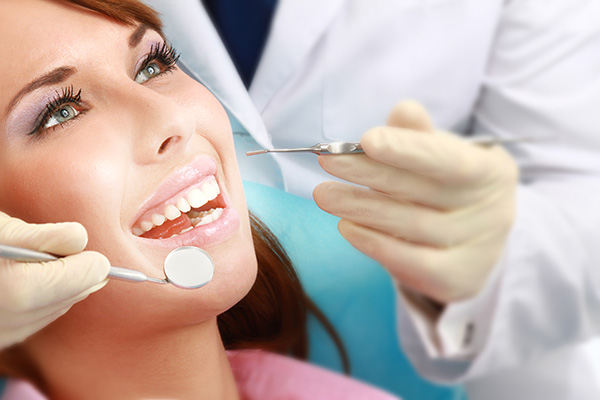What Happens During Your Teeth Cleaning Appointment

Scheduling a teeth cleaning is one of the most essential steps you can take to make sure you do not have gum or periodontal disease. We find that people who do not regularly engage in professional teeth cleanings are at a greater risk for getting these kinds of conditions.
Regular checkups are necessary
If you do not receive a professional teeth cleaning appointment at least once every six months, we may need to perform a deep cleaning in order to get your teeth properly cleaned. For most patients, we recommend that you schedule an appointment at least twice a year, to come in and receive teeth cleaning.
This helps to keep your teeth clean and shiny and also helps us to catch any potential issues before they become serious. The objective of cleaning your teeth is to reach those hard-to-reach spots that your toothbrush cannot go. This allows us to remove plaque or tartar buildup before it goes deeper into the tooth and requires a deep cleaning.
What happens during a dental cleaning
A dental teeth cleaning removes plaque and tartar that builds up on the teeth over time. Plaque is a sticky, soft film that contains millions of bacteria that love to live on your teeth. If left unchecked, these bacteria can cause cavities, gum disease and other complications that you want to avoid.
Generally, we will use an ultrasonic instrument and a dental mirror to examine the teeth and look for signs of irritation, swelling, decay, tartar or bleeding. Without treatment, these can lead to further problems in the future. The ultrasonic instrument we use has a mild vibration technology that loosens larger pieces of tartar.
It also sprays mists of cool water to wash away the tartar and debris loosened by the vibrations. The tip of the ultrasound instrument is rounded and curved and is kept in constant motion. Once we remove the larger pieces of tartar, we will switch to find a handheld instrument to eliminate the deposits on the tooth and smooth the tooth surface.
Necessary cleaning
Once the surfaces of the teeth are clean, we can proceed to the part of the process that many patients find uncomfortable. Part of a good dental teeth cleaning involves polishing the teeth. During this process, we use a slow-speed handpiece that contains a soft rubber cap. Using a gritty toothpaste-like chemical solution, we gradually shine the teeth.
To do this, we allow the solution to spin over the teeth, which creates a shiny and smooth surface. We may also apply fluoride as the final step in the teeth cleaning process. Most dental teeth cleanings take less than 30 minutes, though they may take up to an hour if there is significant work to do.
Once your teeth cleaning is complete, we will let you know if we observe any soft spots, infections or problems that we need to address. Next, we will create a plan for treating them.
Request a dental appointment here: https://chambleedental.com or call Chamblee Dental Care at (770) 238-4316 for an appointment in our Chamblee dental office.
Recent Posts
Has it been some time since you visited the dentist’s office for an oral exam? If so, you may be wondering what the process entails. The following will help you prepare for your visit and alleviate any anxiety you may be feeling.While all dentists differ in some ways, most will follow the same steps during…
The purpose of a dental check-up goes further than merely getting your teeth cleaned. It is also an opportunity for a dentist to evaluate the patient's mouth and come up with a treatment plan for any issues that may not be known by the patient. Regular visits to the dentist's clinic are an integral part…
If you are worried about foods and drinks that stain your teeth, you are not alone. You can only do so much with flossing, brushing and attending 6-month dental visits. Many of the foods and beverages you enjoy pose a direct threat to the look and functionality of your teeth.Foods/beverages laden with sugar, acid and…
Preventive dentistry is a branch of dentistry that focuses on protecting your mouth against common dental issues like tooth decay and gum disease. It include simple things that you can do independently, like practicing oral hygiene, and procedures performed by dentists, like dental cleanings.Taking good care of your mouth makes you less likely to develop…


